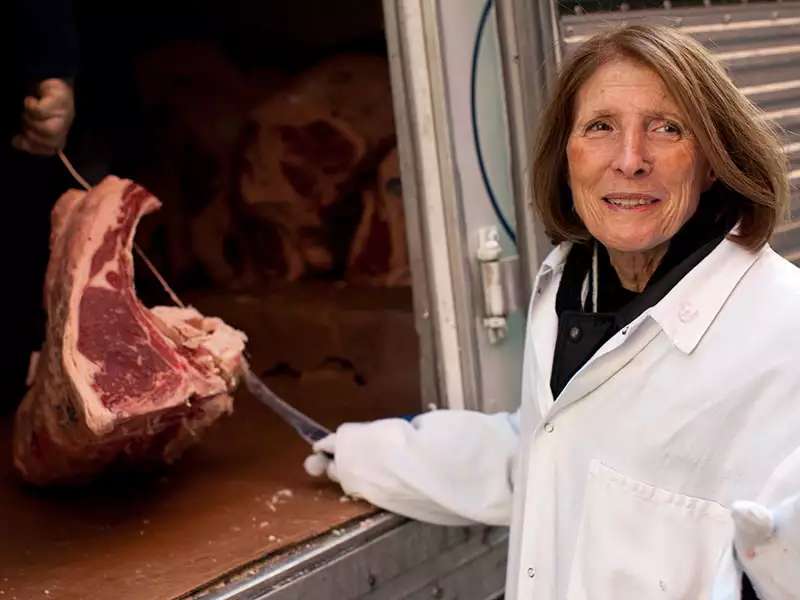
Marilyn Forman Spiera ’59, famed Peter Luger restaurateur, preserved family traditions
When Betsy Wade ’51 became the first woman to edit the news in the 105-year history of The New York Times, she noted the spittoons vanished from the city room within her first week. Her landmark appointment to the copy desk in 1956 signaled a new era for women in journalism, previously relegated to women’s pages that covered the “Four F’s” — family, food, furnishings, and fashion.
Wade began her career writing for the New York Herald Tribune’s women’s page after earning her master’s from the Columbia University Graduate School of Journalism. Wade’s boss, a woman, summarily fired her once she learned Wade was pregnant. Wade then took a position as beauty editor and assistant women’s editor at the Newspaper Enterprise Association before joining the staff at the Times.
In her Times obituary, Robert D. McFadden wrote, “She was soon recognized for her cool appraisals of articles and her deft pencil — invisible to readers, but all too apparent to colleagues — as her surgical excisions and repairs saved the Times from factual errors and its writers from clumsy sentences, phrases of dubious taste, and embarrassing flaws in grammar, spelling, and syntax.”
She took the same scrupulous approach addressing sexism and gender inequalities in the workplace. As a founding member of the Times’ Women’s Caucus in 1972, she identified deep-seated discrimination affecting women’s hiring, wages, promotions, and leadership roles throughout the organization. That led to the class-action lawsuit Elizabeth Boylan et al. v. The New York Times, brought forth by Wade and six other plaintiffs in 1974 after management continually dismissed their concerns. (Wade’s name was attached to the suit because it came first alphabetically among the plaintiffs. She married Columbia Journalism Review founding editor James Boylan in 1952, and it was her married name that appeared on her Times paychecks.) The case was settled in 1978.
“Women of every generation at the Times have fought their own versions of discrimination in the newsroom. But Betsy was the first, and her battle the riskiest,” wrote Wade’s Times colleague Jan Benzel in a profile for the Columbia Journalism Review that ran after Wade’s death on December 3, 2020, at age 91.
Never one to shy away from risk, Wade was part of a covert team that met in a secret hotel suite to edit the Pentagon Papers, which won the Times a 1972 Pulitzer Prize. In 1977, amid the class-action lawsuit, Wade, who had been the foreign desk copy chief — another women’s first — was reassigned to assistant travel editor. She returned to the national copy desk in 1981 but never regained a leadership position at the paper. In 1987, she took over the Practical Traveler column, which she wrote until her retirement in 2001.
Though Wade received little compensation from the settlement, and it likely curtailed her career advancement, she recognized the group’s groundbreaking role in the fight for gender equality, commenting, “We know that we opened doors for a new generation that may not know they were ever closed.”